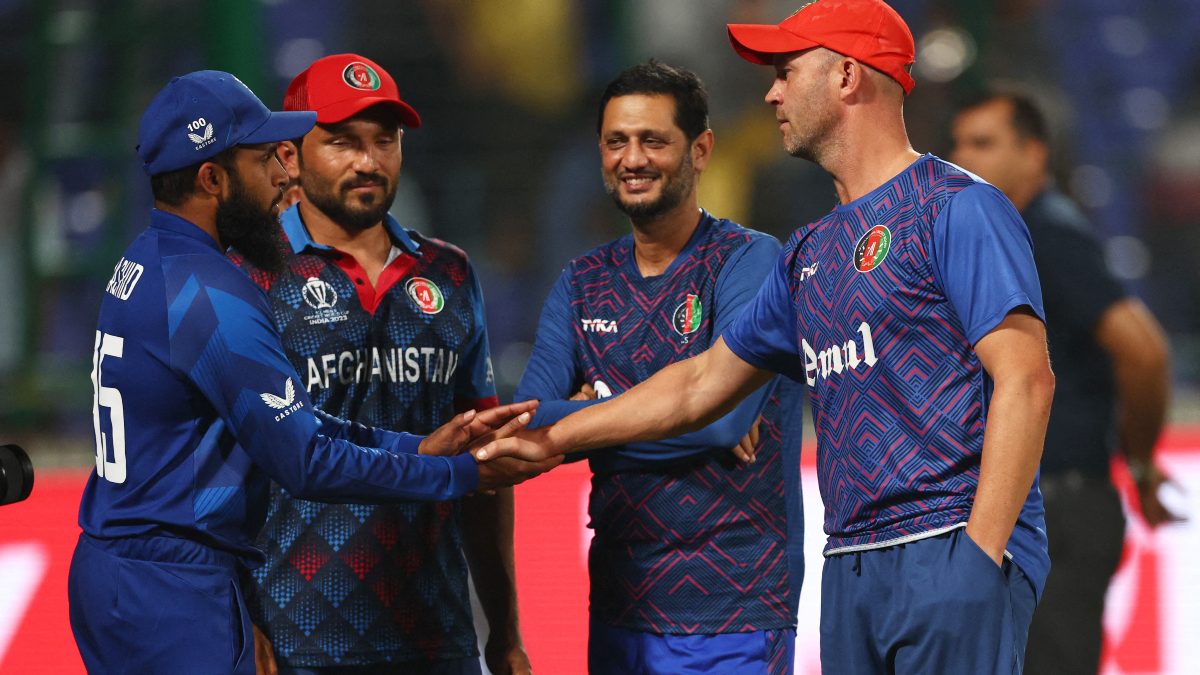South Africa is the latest cricket team to be urged to boycott Afghanistan at the upcoming Champions Trophy 2025, set to begin on 19 February. Earlier, the England cricket team faced similar calls from UK politicians and influential figures to boycott the Afghan men’s team in the ICC event.
On Thursday, South African sports minister Gayton McKenzie said that while the decision to boycott Afghanistan at the Champions Trophy doesn’t rest with him, he thinks that it is the right decision given how the current Taliban regime in the Asian country has trampled over the women’s rights.
“It is not for me as the sports minister to make the final decision on whether South Africa should honor cricketing fixtures against Afghanistan. If it was my decision, then it certainly would not happen,” McKenzie said in a statement.
“As a man who comes from a race that was not allowed equal access to sporting opportunities during apartheid, it would be hypocritical and immoral to look the other way today when the same is being done towards women anywhere in the world.”
Earlier, veteran anti-apartheid activist Peter Hain had also asked Cricket South Africa to raise the matter with the International Cricket Council (ICC) .
Meanwhile, the England and Wales Cricket Board (ECB) has already cleared that they will not boycott the Afghanistan match despite condemning the Taliban’s treatment of women and girls in Afghanistan.
Impact Shorts
More Shorts“The ECB strongly condemns the treatment of women and girls in Afghanistan under the Taliban regime,” ECB CEO Richard Gould said in response to a letter by UK politicians asking for a boycott. “The ICC constitution mandates that all member nations are committed to the growth and development of women’s cricket. In line with this commitment, the ECB has maintained its position of not scheduling any bilateral cricket matches against Afghanistan.”
“While there has not been a consensus on further international action within the ICC, the ECB will continue to actively advocate for such measures. A coordinated, ICC-wide approach would be significantly more impactful than unilateral actions by individual members."
Also Read | Why ICC didn’t ban Afghan men’s team despite Taliban takeover
Both South Africa and England along with Australia are part of Group B in the Champions Trophy 2025 which also includes Afghanistan.
Why England, South Africa are not boycotting Afghanistan?
While many may feel it’s the right step to boycott the Afghanistan cricket team to mark a protest and set an example, why is it that no team is really doing it?
The reason is simple. England have not been playing Afghanistan in bilateral cricket but boycotting them in an ICC event means inflicting self-harm. They are allowed by ICC to skip a match in the tournament but doing so will mean Afghanistan getting full points. The same condition applies to South Africa.
Considering each team has just three group matches to qualify for the semi-finals and only the top two teams from a group will reach the last four stage, no side wants to lose full points in a match without even taking part in the encounter.
When teams boycotted matches in past
Is there a precedent for teams boycotting matches in ICC events?
Yes. Cricket teams have in the past boycotted matches against a few teams on moral grounds.
Australia and West Indies refused to travel to Sri Lanka for their 1996 World Cup matches due to security concerns, resulting in four full points for the Island Nation.
England boycotted their 2003 World Cup match against Zimbabwe in Harare as a protest against President Robert Mugabe’s government. England wanted a change of venue but eventually had to surrender full points to Zimbabwe.
New Zealand also handed over full points to Kenya in the 2003 World Cup after refusing to travel to Nairobi due to security issues.
)